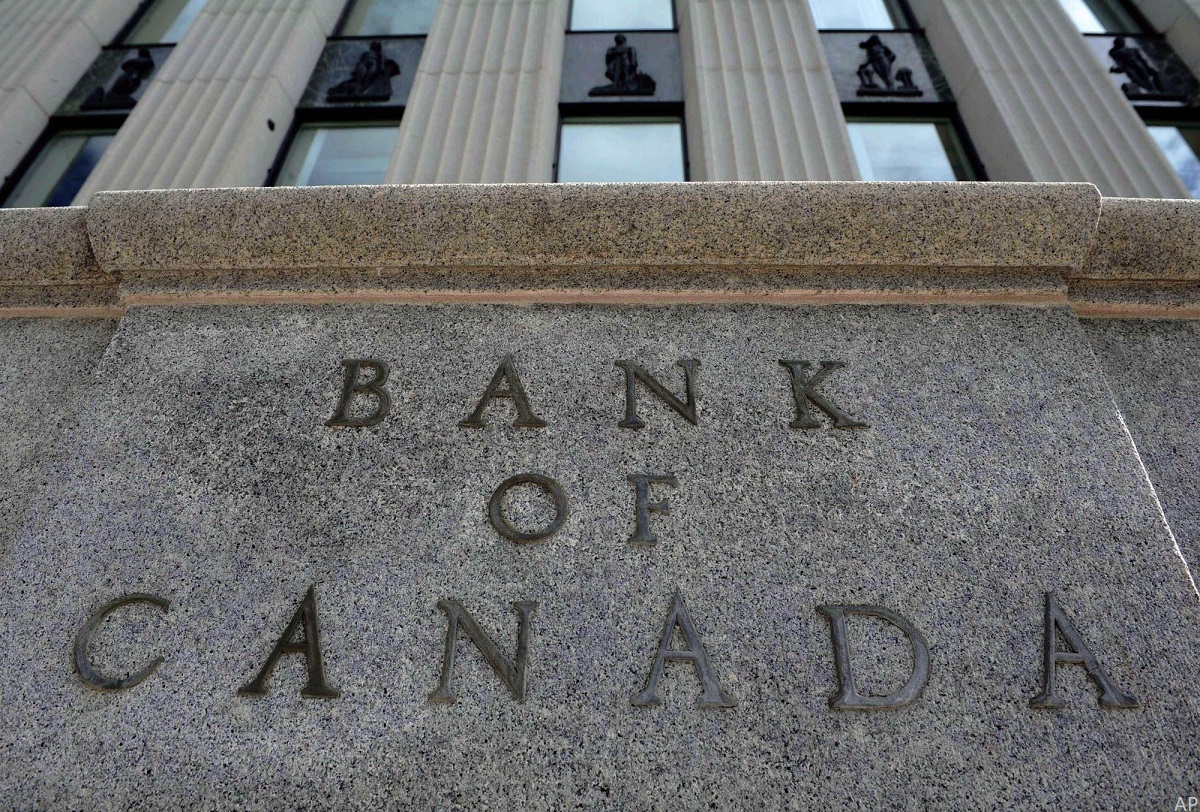
While stock markets have been jarred by a series of events, such as the failure of Silicon Valley Bank, and the seemingly endless Russia-Ukraine conflict, the main factor that’s behind the volatility is inflation, argues Shah Khan, a member of the team managing the 5-star bronze-rated $5.1 billion Mackenzie Bluewater Canadian Growth F (also available in Series D).
With the prospect of a recession in the background, Khan maintains that focusing on companies that can deal with the coming economic challenges is critical.
“There is always this constant barrage of news flow. So it’s important to cut through the noise and step back and identify what is material,” says Khan, vice president and portfolio manager on the Bluewater team at Toronto-based Mackenzie Investments Inc. “The big problem has undoubtedly been inflation and a lot of that can be traced back to COVID-19. You had government programs and lockdowns which resulted in a shift in consumer spending patterns. Couple that with supply chain constraints and shortages. This is where the Russian invasion came into play. It was a material event because it increased inflationary risk since Russia is a major producer of many commodities. Then you had China’s zero-COVID policy. All in all, this created headline inflation numbers that were not seen since the 1980s.”
What Should Stock Investors Be Worried About Right Now?
Since central banks cannot deal with supply issues, they raise interest rates to moderate the demand side of the equation. “That’s really what caused a lot of last year’s market chaos, where central banks were raising rates at the fastest pace in history, and that just rippled across asset prices,” says Khan, a 13-year industry veteran and a Canadian equities specialist who joined the Bluewater team in 2010, after he graduated from McMaster University with a BSc in biochemistry and an MBA. “They will continue to do that until you get demand destruction, companies respond by laying off workers and you’ll see a rise in unemployment. The problem is that is the definition of a recession: when a whole bunch of people lose their jobs. Over the past six decades, every time unemployment rose by a half percentage point or more, it resulted in a recession. But academics say it takes one to two years for rate increases to be felt,” says Khan, adding that the Bank of Canada is currently on hold for the moment, but the U.S. Federal Reserve is likely to keep raising rates.
SVB is Not a Banking Crisis by Itself
Kahn regards the failure of Silicon Valley Bank as a “one-off” event that did not involve fraud and is not a repeat of the Great Financial Crisis of 2008-09, which had trillions in losses from poor assets. But it is expected to have an effect, in the form of tightened lending standards that will hurt small and medium-sized businesses that are the mainstay of the economy. “The risk of a recession has risen in the last month,” argues Khan. “If you look at history you can see that recessions are a normal part of the economic cycle, with a slowdown followed by a recovery and a new economic cycle and a bull market. Notwithstanding the dramatic headlines, we will come out the other side. But it seems like getting there is more painful than the actual recession.”
Khan works alongside Bluewater team co-leaders and senior vice-presidents Dina DeGeer and David Arpin, and vice-presidents David Taylor and Tyler Hewlett. Since the start of 2022, they expected the economy would slow, contrary to the consensus view that global synchronized growth would mean happy days. “We are not waking up to this notion of an economic slowdown. We’ve been positioning ahead of it,” says Shah, noting that the team took advantage of last year’s market correction to build positions.
Investing in Growth Tailwinds and a Strong Defense
Running a portfolio with 35 equity names, of which about 40% by weight are non-Canadian, Khan notes that the fund is divided into two broad categories. The first group is comprised of defensive businesses that grow through thick and thin. They include names such as TELUS Corp. (T), Intact Financial Corp. (IFC) and Dollarama Inc. (DOL). The second group is made up of firms that benefit from secular tailwinds and structural change, such as the energy transition that is driving growth in renewable power areas such as solar energy. “There are many companies that will do just fine in a recession because of these investments in what looks like will be a multi-decade opportunity. They won’t see a collapse in revenues or earnings and by extension we believe the fund will do better than the average.”
Year-to-date (April 17), Mackenzie Bluewater Canadian Growth F has returned 7.68%, versus 6.52% for the Canadian Focused equity category. Over three, five and 10 years, the fund returned an annualized 12.93%, 9.85% and 13.40%, respectively. In contrast, the category returned an annualized 13.67%, 7.38% and 8.22%.
The team employs a bottom-up growth investment process to pick through a broad universe of Canadian and U.S. stocks and settle on a relatively small number of companies that pass several hurdles including in-depth fundamental and discounted cash flow analysis. But the process also includes a top-down overlay. “We are constantly trying to identify structural or secular trends in the economy. We are looking at industries at risk and looking for opportunities. The energy transition is a great example. It’s made us cautious on the energy sector, where we have zero exposure,” says Khan, adding that the team avoids deep cyclical or pure commodity companies whose free cash flow streams are not stable or predictable through an economic cycle.
Key Criteria for Stock Picks
“We are trying to find the leaders, those companies with better profitability and growth and are gaining market share over time,” says Shah, adding that calculating the fair value of the firm is the last part of the process. “They are generally better-managed businesses where management can see trends ahead of time and position their company accordingly.”
While the sector weights are a by-product of the stock selection process, currently industrials are the largest sector at 22.5%, followed by information technology at 17%, financials at 14%, and healthcare at 11%.
In searching the universe, the team seeks several key attributes. First, they look at a company’s free cash flow and what management does with it. “If they can grow that cash stream, then the business should be worth more over time. We are looking for businesses that grow free cash flow above market rates but not at extremely fast rates. We are looking for stability in their free cash flow.” The second attribute is a strong balance sheet, which suggests management can take advantage of opportunities and is not taking on undue financial risk. Finally, they look for attractive valuations and share-price multiples. “We like to buy at a discount and start trimming when we get to double-digit premiums relative to the stock’s value.”
Low-Risk High-Margin Stock Picks
One example of the fund’s holdings is Stantec Inc. (STN), a leading globally-based provider of engineering design and consulting services on large-scale construction and infrastructure projects. “That’s where most of the value-added is: the design phase. It’s a low-risk, high-margin company with lots of free cash flow,” says Shah, adding that every geography is seeing positive organic growth. “It’s being driven by a couple of things. First, there is all the infrastructure spending in North America. Their environmental business is also seeing tailwinds from the energy transition. Stantec is the only holding in Canada that is a beneficiary from that trend,” says Shah, adding that the firm, which has a market capitalization of $8.7 billion, is doing all the environmental assessments and permitting for many wind farms and solar energy projects that are being built in North America. “Second, they are benefitting from the onshoring activity, principally by the semiconductor manufacturers who are opening plants in North America.”
Shah argues that the firm has strong order backlogs and bookings and given the nature of their contracts Stantec can pass through any inflationary costs. “And it’s trading for a price-earnings multiple of 20 times future earnings. That’s just over two-turns cheaper than their closest competitor, WSP Global Inc. (WSP), which trades at around 22 times forward earnings,” says Shah, noting that the team began building a position in 2018.
Another favourite long-term holding is Dollarama Inc. (DOL), the Montreal-based specialty discount retailer that has over 1,400 outlets and a market capitalization of $23.5 billion. “We regard them as a category-killer in the retail space. Their business was completely immune from disruption [during COVID], from Amazon.com Inc. (AMZN) and other e-commerce players and their prices are about half of what their competitors charge,” says Shah, noting that the stock is trading at 22 times forward earnings. “If you look at their value proposition, it’s become even more relevant today, with consumers getting squeezed by inflation. It’s a business that performs well in good times and weak times--in all economic environments. Right now, people are looking to get deals, and that’s driving traffic into stores.”
Looking ahead, Shah believes that investors should expect softer growth this year, as the risk of a recession has risen. “Companies whose earnings are able to hold up should perform better. It’s going to be a stock-picker’s market,” Shah argues. “How the overall market will perform is anyone’s guess. But we don’t make forecasts. We prefer to focus on the best businesses that can navigate through all market environments.”























